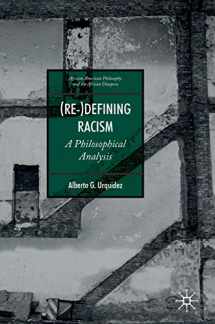
(Re-)Defining Racism: A Philosophical Analysis (African American Philosophy and the African Diaspora)
Book details
Summary
Description
What is racism? is a timely question that is hotly contested in the philosophy of race. Yet disagreement about racism's nature does not begin in philosophy, but in the sociopolitical domain. Alberto G. Urquidez argues that philosophers of race have failed to pay sufficient attention to the practical considerations that prompt the question "What is racism?" Most theorists assume that "racism" signifies a language-independent phenomenon that needs to be "discovered" by the relevant science or "uncovered" by close scrutiny of everyday usage of this term. (Re-)Defining Racism challenges this metaphysical paradigm. Urquidez develops a Wittgenstein-inspired framework that illuminates the use of terms like "definition," "meaning," "explanation of meaning," and "disagreement," for the analysis of contested normative concepts. These elucidations reveal that providing a definition of "racism" amounts to recommending a form of moral representation--a rule for the correct use of "racism." As definitional recommendations must be justified on pragmatic grounds, Urquidez takes as a starting point for justification the interests of racism's historical victims.


We would LOVE it if you could help us and other readers by reviewing the book
Book review



